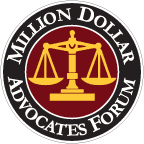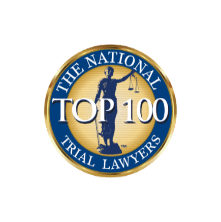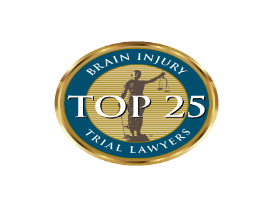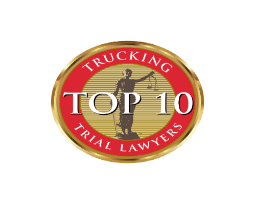Navigating the World of Prescription Medications: A Comprehensive Guide
Prescription medications play a pivotal role in modern healthcare, helping millions of people manage, alleviate, and even overcome a wide range of medical conditions. Whether it’s a life-saving antibiotic, a chronic pain management drug, or medication to regulate blood pressure, prescription drugs have become an integral part of our lives. In this comprehensive guide, we will explore the world of prescription medications, shedding light on their significance, the processes involved, potential challenges, and how to navigate this crucial aspect of healthcare.
The Significance of Prescription Medications
Prescription medications are drugs that can only be obtained with a valid prescription from a licensed healthcare provider. They are a cornerstone of medical treatment and serve several critical purposes:
-
Treatment: Prescription drugs are used to treat a broad spectrum of medical conditions, from infections to chronic diseases like diabetes and hypertension.
-
Pain Management: Many prescription medications help manage pain, providing relief to those dealing with acute or chronic pain.
-
Prevention: Some prescription drugs are prescribed to prevent the onset or progression of specific conditions, such as blood thinners to prevent clotting.
-
Quality of Life: Medications often enhance the quality of life for individuals with conditions like depression, anxiety, or insomnia.
-
Life-saving: Certain prescription medications, such as those for severe allergies or heart conditions, can be life-saving in emergencies.
-
Recovery: In post-surgical or post-injury scenarios, prescription drugs aid in recovery and healing.
The Prescription Process
Understanding the prescription process is vital for both patients and healthcare providers. Here’s how it typically works:
-
Patient Evaluation: A patient seeks medical care for a specific condition or symptom. The healthcare provider conducts a thorough evaluation, which may include a physical examination and medical history review.
-
Diagnosis: Based on the evaluation, the healthcare provider diagnoses the condition and determines whether medication is necessary.
-
Choosing Medication: If medication is deemed appropriate, the healthcare provider selects the most suitable prescription drug, considering factors such as the patient’s medical history, allergies, and the nature of the condition.
-
Prescription Writing: The healthcare provider writes a prescription that includes details like the drug name, dosage, route of administration, and directions for use.
-
Pharmacy Dispensing: The patient takes the prescription to a pharmacy, where a pharmacist fills the prescription with the specified medication.
-
Patient Education: The pharmacist provides essential information to the patient, including how to take the medication, potential side effects, and any necessary precautions.
-
Monitoring: For some medications, ongoing monitoring and follow-up with the healthcare provider are necessary to assess the drug’s effectiveness and safety.
Challenges and Considerations
While prescription medications are invaluable, several challenges and considerations are associated with them:
-
Cost: The cost of prescription drugs can be a significant financial burden, especially for those without insurance or facing high co-pays.
-
Side Effects: All medications come with potential side effects, which can range from mild to severe. Patients must be aware of these risks.
-
Drug Interactions: Some medications can interact with others, potentially leading to adverse effects. It’s crucial to inform your healthcare provider of all the drugs you are taking.
-
Adherence: Taking medications as prescribed is essential for their effectiveness. Non-adherence can lead to treatment failure or complications.
-
Prescription Errors: Mistakes in prescribing or dispensing medications can occur, emphasizing the importance of clear communication and vigilance.
-
Drug Shortages: Shortages of certain prescription drugs can occur, posing challenges for patients and healthcare providers.
Navigating the World of Prescription Medications
To navigate the world of prescription medications effectively, consider the following tips:
-
Open Communication: Maintain open and honest communication with your healthcare provider. Share any concerns, side effects, or difficulties you may encounter.
-
Understanding: Take the time to understand your prescribed medication, including its purpose, dosage, and potential side effects.
-
Adherence: Adhere to your prescribed medication regimen diligently. Use tools like pill organizers or smartphone apps to help you remember.
-
Ask Questions: Don’t hesitate to ask your healthcare provider or pharmacist questions about your medication, especially if something is unclear.
-
Insurance Coverage: Familiarize yourself with your insurance coverage and explore generic alternatives when possible to reduce costs.
-
Monitoring: Attend follow-up appointments as recommended by your healthcare provider to monitor the medication’s effectiveness and make any necessary adjustments.
-
Medication Review: Periodically review your medication list with your healthcare provider to assess whether any changes or discontinuations are needed.
-
Patient Assistance Programs: For those facing financial hardships, explore patient assistance programs offered by pharmaceutical companies or nonprofit organizations.
Conclusion
Prescription medications are a cornerstone of modern healthcare, offering hope, relief, and sometimes even life-saving treatment for millions of people. Understanding the prescription process, potential challenges, and effective strategies for managing prescription medications is crucial for ensuring their safe and beneficial use. By fostering open communication with healthcare providers, staying informed, and adhering to prescribed regimens, individuals can navigate the world of prescription medications with confidence, ultimately enhancing their health and well-being.









